Contact With Donor Family
One of the questions that comes up regularly is regarding contacting the family of the donor. Those whose children have had non living donors are so very grateful and so aware of the tragedy which has brought us such great joy. Many families would like to contact the donor but do not know whether it is appropriate. To address this question we asked Kings College Hospital and the Donor Family Network about this issue. Below are their replies which may help. The leaflet from Kings is from the adult department but it is helpful none the less.
1. Kings College Hospital
WRITING TO YOUR DONOR’S FAMILY
After recovering from a transplant some of the recipients feel they would like to write to the family of their donor.
The decision to write is a very personal one. You may not find it easy to express how you feel or how to say thank you.
Deciding to write is entirely up to you. It’s your choice and there are no expectations.
If you decide to write the timing is entirely up to you. It is never too late to express your thoughts be it weeks, months or years later.
How do I say thank you?
We do not want to tell you what to write but the following guidelines may be helpful.
Introduce yourself. Use your first name if you are comfortable.
Acknowledge their loss and your appreciation
Tell the donor’s family a bit about yourself and your family
Explain how your life has been altered by the transplant
Describe what you enjoy doing
Please do not include your surname, address or telephone number or mention Kings Hospital
There are many ways to say thank you and however you choose to convey your thanks will be appreciated by the donor family.
After completing your letter
Place your card/letter in an unsealed envelope
Please include a note with your full name, address and date of transplant
Place them in another envelope and send them on to you transplant coordinator at Kings College Hospital.
Your recipient coordinator wil read the letter to ensure confidentiality. It will then be forwarded to the donor coordinator who will contact the donor family and send the letter on.
Will I hear from my donor’s family?
You may not receive a response from the donor’s family. However we know from experience that the vast majority of letters from transplant recipients such as yourself are greatly appreciated by the donor families.
If you have any questions about writing to your donor’s family please contact any of the transplant coordinators who will be happy to help and advise you.
On behalf of the transplant team at Kings thank you for taking the time to read this leaflet, recognizing your donor’s gift and the role their family had in giving other people a chance of renewed health.
Liver Recipients Coordinators
Institute of Liver Studies
Kings College Hospital
Denmark Hill London
SE5 9RS
Direct line 0207346 3309
2. LETTER FROM THE DONOR FAMILY NETWORK
Advise to Recipients over contacting their Donor Family
From our experience as donor parents and the work we do as Trustees of the DFN in supporting families who have lost a loved one who has donated, the most important thing we can say that contact from the recipient families is very important to donor families. We would love to see more recipients contacting their donor families.
Nothing major is required. We would suggest a short letter of thanks is welcomed shortly after the donation to ensure that the donor families feel valued.
Some families may wish to correspond further. The majority of donor families would welcome confirmation of how the transplant has changed their families lives. It is fine to tell the donor family a little about your family and particular the recipient, but it is best to use only first names in the letter. Do not be afraid to tell the donor family about the things your child\recipient can now do which they couldn’t do before – it is what they need to know so that they can be assured that some good has come out of their\loved ones decision.
Encourage your members to remember that the donor family made the decision to donate their loved one’s organs because they wanted something good to come out of their family tragedy. It may also be worth pointing out to your families that the donor families will generally not wish to correspond back but does not mean that they have not appreciated a letter from the recipient. You will not upset the family more by contacting them. If they have chosen not to receive any correspondence, then the SN-OD who looked after them will know their wishes and will not forward your letter to them.
We do hope that this has helped in some way. Do not hesitate to contact us if we can help you any further.
Warm Regards
Nigel Burton
Vice Chairman
Donor Family Network
